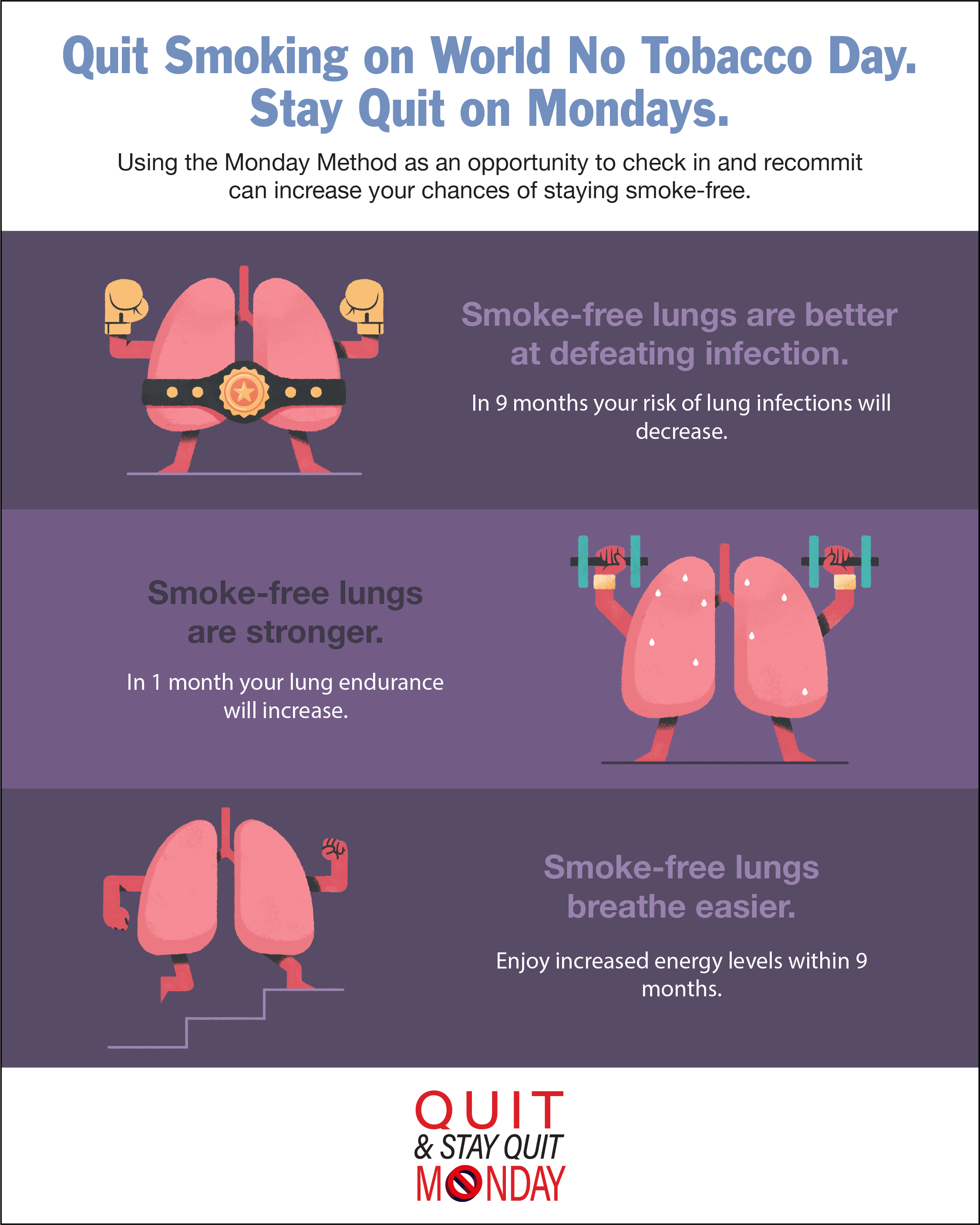Here’s What Happens to Your Lungs When You Stop Smoking
Smoking takes a heavy toll on your lungs; when you quit, your lungs get to quit too, and they’ll have a chance to recover from much of the damage they’ve experienced from tobacco.
Quit for Your Lungs
The theme for the 2019 World No Tobacco Day, an annual campaign to raise awareness on the harmful and deadly effects of tobacco use, was lung health. There are plenty of reasons to quit, and a biggie is the difference in your lungs’ health. When you quit, your lungs will improve in several ways:
- Breathe better: Within just two weeks of quitting, simple activities like walking up the stairs may feel more effortless. Quitting will decrease shortness of breath.
- Wheeze less: You’ll start coughing and wheezing less often anywhere from one to nine months after quitting.
- Get stronger: Very soon after you stop smoking, cilia, microscopic hair-like structures that help keep the lungs’ airways clear, can start to regrow. Beyond clearing out mucus and dirt, cilia help the body combat colds and infections.
Quitting isn’t easy, and as the Centers for Disease Control and Prevention notes, many smokers do not quit on their first attempt. Use Monday as your motivation to stay quit and keep up your healthy habits all week long. Before you know it, you’ll be breathing easier, and your lungs will thank you for that.
For more tips and ideas, follow us on Facebook, Twitter, Pinterest, or Instagram.
